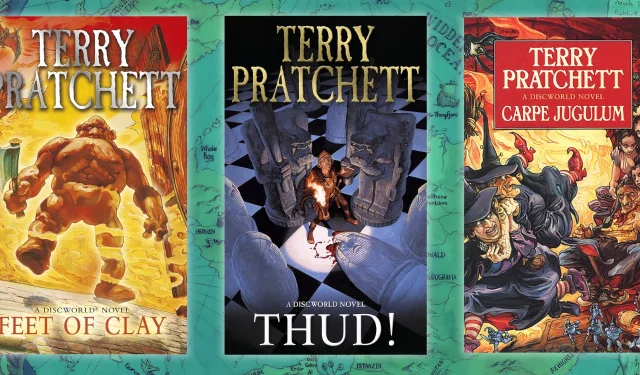
Terry Pratchett’s Discworld novels rank among the most entertaining and insightful works in the fantasy genre. While their humor is unmatched, the depth of Pratchett’s understanding of human nature—its virtues, flaws, joys, and follies—elevates the series beyond mere entertainment. With a sprawling total of 41 novels, the Discworld series features intricate narratives woven around several central characters, including the enigmatic Death and Sam Vimes, the seasoned head of the Ankh-Morpork City Watch.
Despite several adaptations for television that often miss the mark, the original books stand out as the best way to fully experience Pratchett’s wit and its accompanying social commentary—infused with elements of philosophy, theology, and sharp satire. This article highlights ten distinctive quotes from various Discworld novels, showcasing moments where the profound collides with the absurd, capturing the essence of Pratchett’s creativity.
10
“Lord, What Can The Harvest Hope For, If Not For The Care Of The Reaper Man?”
Death
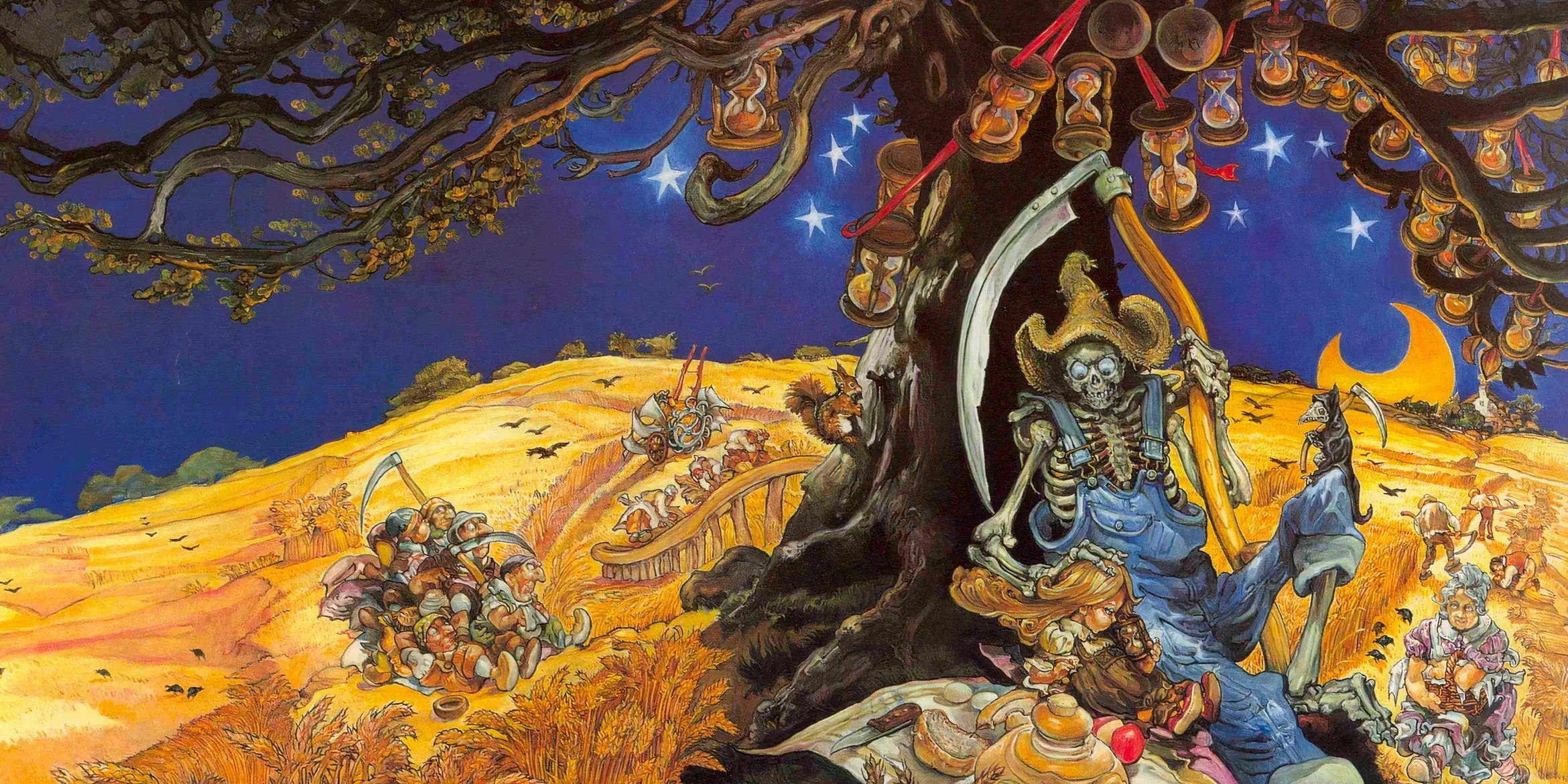
Reaper Man, the 11th installment in the series, continues the journey of Death, initially introduced in Mort. After taking Mort as an apprentice, Death gains a personality, much to the disapproval of his superiors, the Auditors of Reality. In an attempt to restore order, they impose a normal life upon him, leading him to work as a farmhand.
ALL THINGS THAT ARE, ARE OURS. BUT WE MUST CARE. FOR IF WE DO NOT CARE, WE DO NOT EXIST. IF WE DO NOT EXIST, THEN THERE IS NOTHING BUT BLIND OBLIVION. AND EVEN OBLIVION MUST END SOMEDAY. LORD, WILL YOU GRANT ME JUST A LITTLE TIME? FOR THE PROPER BALANCE OF THINGS. TO RETURN WHAT WAS GIVEN. FOR THE SAKE OF PRISONERS AND THE FLIGHT OF BIRDS.
Death took a step backwards.
It was impossible to read the expression in Azrael’s features.
Death glanced sideways at the servants.
LORD, WHAT CAN THE HARVEST HOPE FOR, IF NOT FOR THE CARE OF THE REAPER MAN?
The Auditors replace Death with numerous replacements for different species. However, the delay in assigning a New Death for humans leads to a peculiar outcome where confused zombies roam until the new entity emerges and targets the original Death. Ultimately, Death confronts the Auditors, demonstrating that his empathetic approach to his responsibilities is fundamentally essential, highlighting that our actions possess value when executed with compassion.
9
“This Was The Captain Samuel Vimes ‘Boots’ Theory Of Socioeconomic Unfairness.”
Vimes’ Internal Monologue
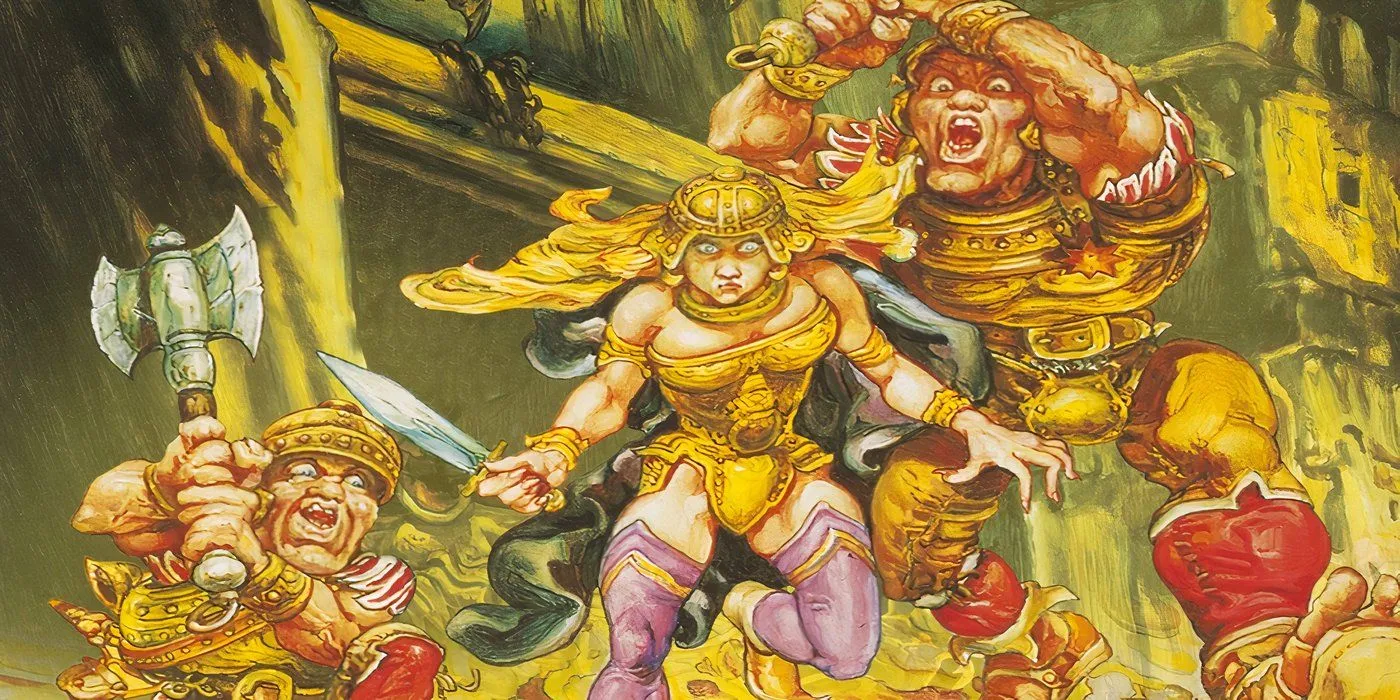
The 15th title in the series, Men At Arms, reveals Watch Captain Sam Vimes as he prepares for his marriage to Lady Sybil Ramkin, while simultaneously chasing an assassin wielding a peculiar weapon called a “gonne.”
The reason that the rich were so rich, Vimes reasoned, was because they managed to spend less money.
Take boots, for example. He earned thirty-eight dollars a month plus allowances. A really good pair of leather boots cost fifty dollars. But an affordable pair of boots, which were sort of OK for a season or two and then leaked like hell when the cardboard gave out, cost about ten dollars. Those were the kind of boots Vimes always bought, and wore until the soles were so thin that he could tell where he was in Ankh-Morpork on a foggy night by the feel of the cobbles.
But the thing was that good boots lasted for years and years. A man who could afford fifty dollars had a pair of boots that’d still be keeping his feet dry in ten years’ time, while the poor man who could only afford cheap boots would have spent a hundred dollars on boots in the same time and would still have wet feet.
This was the Captain Samuel Vimes ‘Boots’ theory of socioeconomic unfairness.
Vimes’ theory serves as an insightful commentary on the inequities of social class, reflecting his personal journey from street child to captain of the Watch. Unlike many aristocrats, he deeply understands poverty, providing a nuanced perspective on wealth and its responsibilities.
8
“To Change The Fate Of One Individual Is To Change The World”
Death
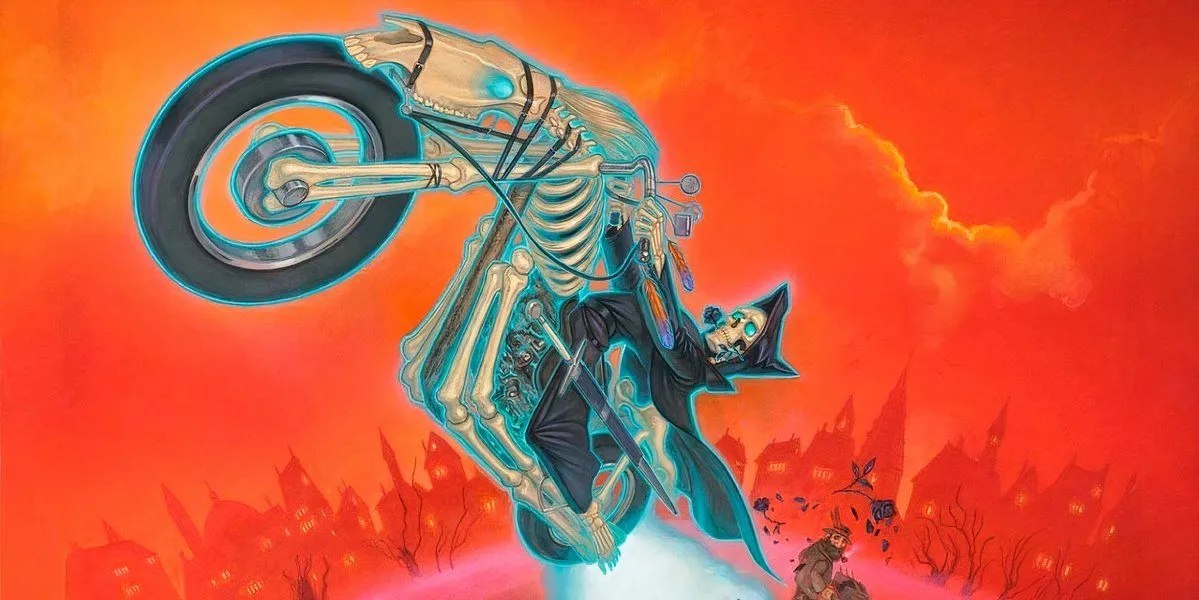
Soul Music, the 16th book, marks the introduction of Death’s granddaughter, Susan. As she grapples with her new role after her parents’ untimely death, she must fill the void as Death goes on leave to process the grief of losing his apprentice, Mort. Meanwhile, a young bard from Llamedos unwittingly brings forth a groundbreaking genre of music known as Music With Rocks In.
While exploring Death’s domain, Susan encounters a pivotal moment where she learns about the powers of life and death, and how each individual possesses the potential to alter reality.
7
“That’s What People Say When The Voiceless Speak”
Vimes
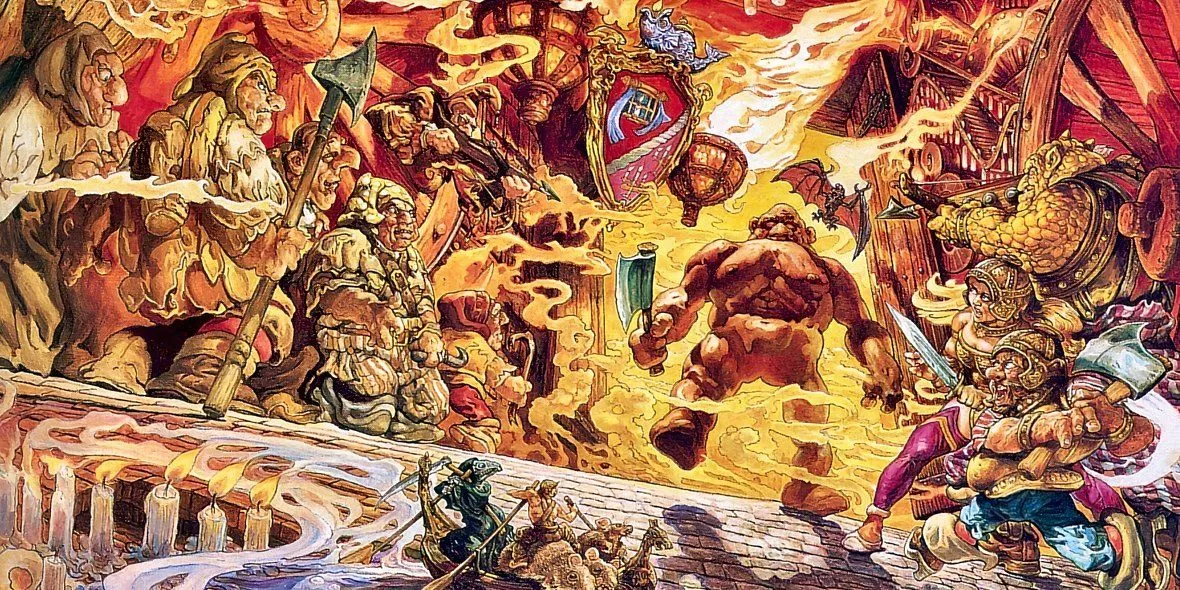
The 19th installment, Feet of Clay, dives into the intricacies of identity and personhood through the narrative of golems, traditionally seen merely as tools. The tale revolves around a rebellion, where golems aspire for freedom from their creators, leading to profound but tragic consequences.
The vampire looked from the golem to Vimes.
“You gave one of them a VOICE?”he said.
“Yes,”said Dorfl. He reached down and picked up the vampire in one hand. “I Could Kill You,”he said. “This Is An Option Available To Me As A Free-Thinking Individual But I Will Not Do So Because I Own Myself And I Have Made A Moral Choice.”
“Oh, gods,”murmured Vimes under his breath.
“That’s BLASPHEMY,”said the vampire.
He gasped as Vimes shot him a glance like sunlight. “That’s what people say when the voiceless speak.”
Through Dorfl, the golem, we witness a transformation that reflects a broader narrative about autonomy and moral agency, as the characters confront their societal constructs.
6
“You Have To Start Out Learning To Believe The Little Lies”
Death
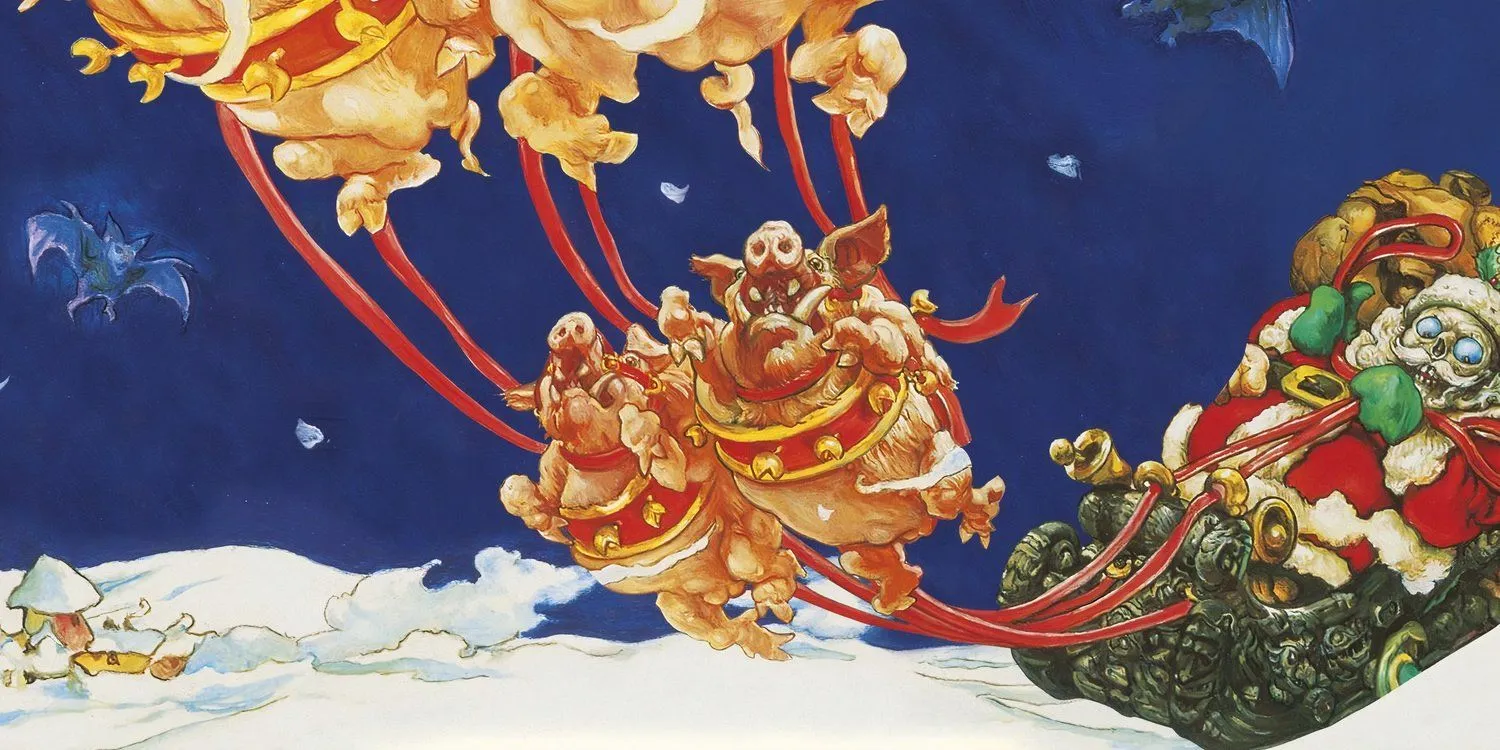
In Hogfather, the 20th book of the series, Death dons the festive garb of the Hogfather, the Disc’s equivalent of Santa Claus, after the Auditors try to eliminate him. Joined by his granddaughter Susan, they navigate the realm of belief and its significance, especially in children’s perceptions of reality.
YOU HAVE TO START OUT LEARNING TO BELIEVE THE LITTLE LIES.
“So we can believe the big ones?”
YES. JUSTICE. MERCY. DUTY. THAT SORT OF THING.
“They’re not the same at all!”
YOU THINK SO? THEN TAKE THE UNIVERSE AND GRIND IT DOWN TO THE FINEST POWDER AND SIEVE IT THROUGH THE FINEST SIEVE AND THEN SHOW ME ONE ATOM OF JUSTICE, ONE MOLECULE OF MERCY. AND YET—Death waved a hand. AND YET YOU ACT AS IF THERE IS SOME IDEAL ORDER IN THE WORLD, AS IF THERE IS SOME… SOME RIGHTNESS IN THE UNIVERSE BY WHICH IT MAY BE JUDGED.
“Yes, but people have got to believe that, or what’s the point –”
MY POINT EXACTLY.
This exploration of necessity and belief underlines the complexities of human existence, suggesting that symbols can provide a semblance of order in a chaotic world.
5
“Sin, Young Man, Is When You Treat People Like Things. Including Yourself.”
Granny Weatherwax
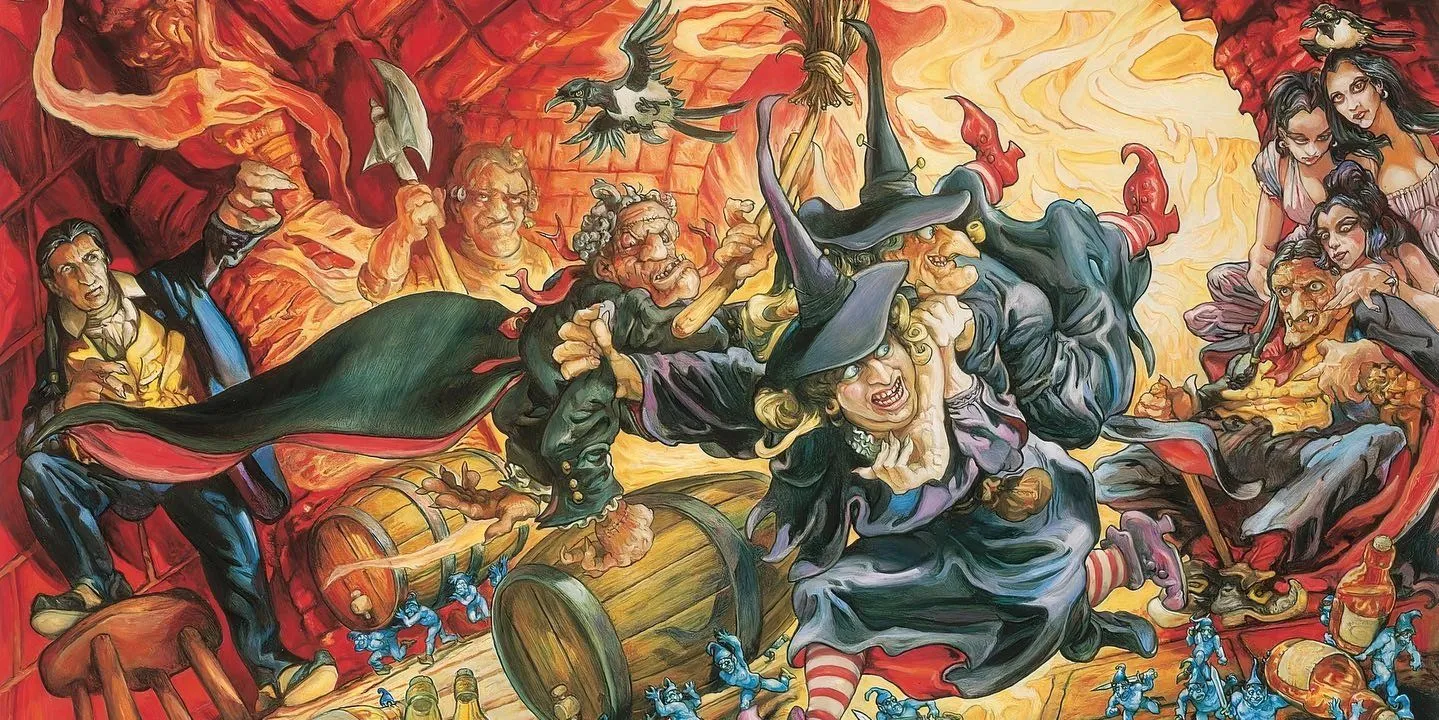
In Carpe Jugulum, the 23rd novel, the formidable witches Granny Weatherwax, Nanny Ogg, and Magrat Garlick face off against the ambitious Magpyr clan, who threaten the stability of their homeland, Lancre.
As Granny confronts her own temptations and the complexities of her moral framework, she reveals her beliefs about the sanctity of human dignity, elevating the discourse surrounding power and responsibility.
4
“But It’s Just Possible That I Might Get A Hard-Boiled Egg”
Vimes
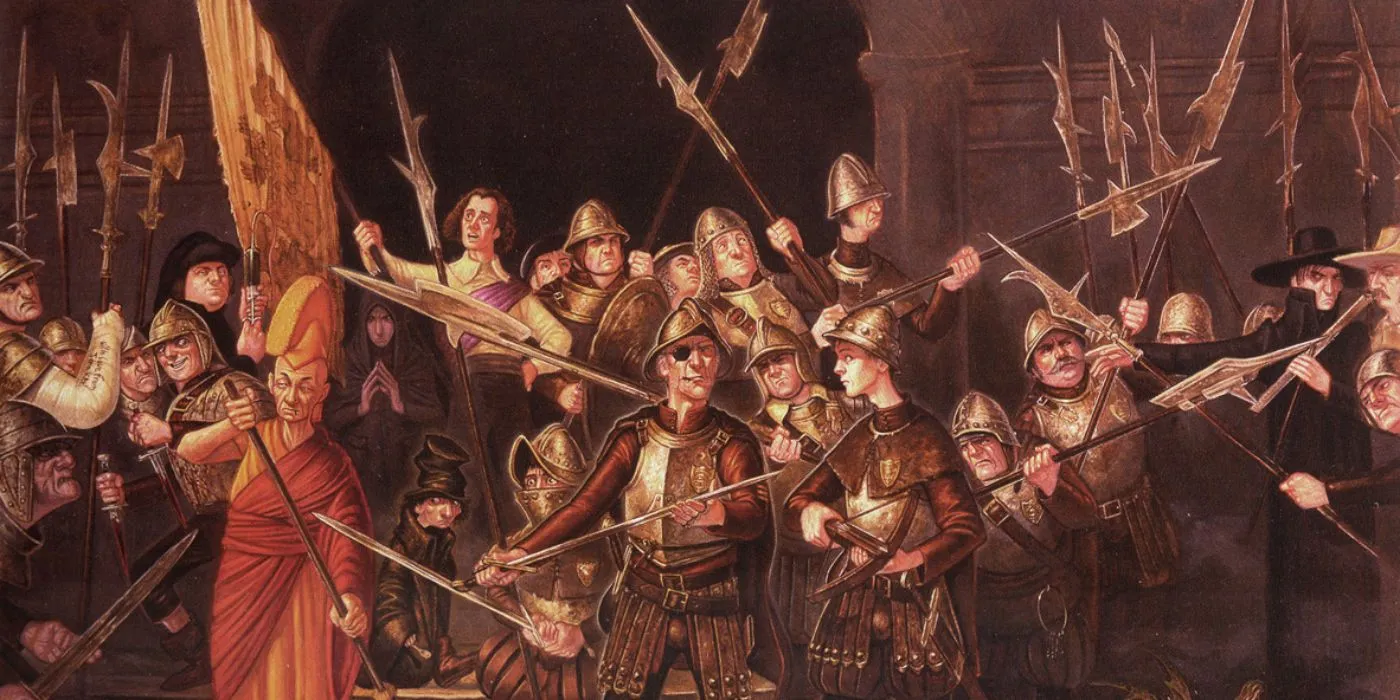
Night Watch (the 29th book) takes an introspective journey through Sam Vimes’ past as he finds himself sent back in time to confront a key moment in history—a revolution. While navigating his younger self’s naiveté, Vimes reminds his comrades of the necessity of pragmatic goals amidst lofty ideals.
“You’d like Freedom, Truth, and Justice, wouldn’t you, Comrade Sergeant?” said Reg encouragingly.
“I’d like a hard-boiled egg,” said Vimes, shaking the match out.
There was some nervous laughter, but Reg looked offended.
“In the circumstances, Sergeant, I think we should set our sights a little higher –”
“Well, yes, we could,” said Vimes, coming down the steps. He glanced at the sheets of papers in front of Reg. The man cared. He really did. And he was serious. He really was. “But… well, Reg, tomorrow the sun will come up again, and I’m pretty sure that whatever happens we won’t have found Freedom, and there won’t be a whole lot of Justice, and I’m damn sure we won’t have found Truth. But it’s just possible that I might get a hard-boiled egg.”
This conversation encapsulates Vimes’ pragmatic ethos, where he balances the pursuit of ideals with realistic expectations, a lesson which resonates beyond the page.
3
“Revenge Is A Wheel, And It Turns Backwards”
The Duchess (Through Wazzer)

In the 31st novel, Monstrous Regiment, Pratchett critiques societal norms that confine gender roles and pit individuals against one another in an endless struggle for power, highlighting Polly Perks’ journey from civilian to soldier in a war she confronts disguised as a man.
“And now I demand that you do what the ignorant might feel is the easier thing. You must refrain from dying in battle. Revenge is not redress. Revenge is a wheel, and it turns backwards. The dead are not your masters.”
Through Polly’s leadership and the revelations among her comrades, the story addresses the themes of identity and agency, culminating in a narrative that deconstructs traditional power dynamics within warfare.
2
If Only The Pawns United, Maybe Talked The Rooks Round, The Whole Board Could’ve Been A Republic In A Dozen Moves.”
Vimes’ Internal Monologue
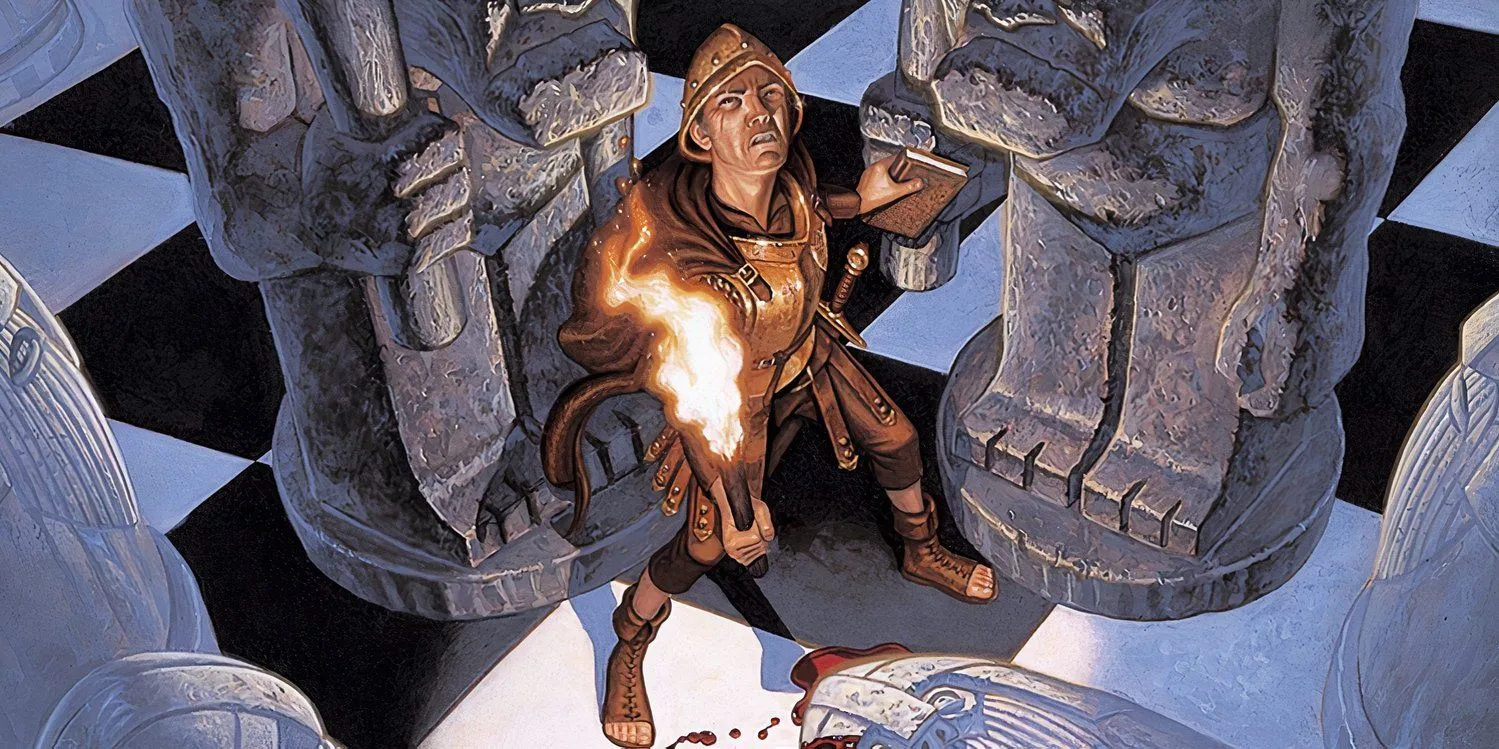
Thud!, the 34th book, sees Vimes delve into the hidden tensions of dwarven and troll societies amid a conspiratorial backdrop. His reflections on the game of chess reveal his insights into unity and political complexity.
Vimes had never got on with any game much more complex than darts. Chess in particular had always annoyed him. It was the dumb way the pawns went off and slaughtered their fellow pawns while the kings lounged about doing nothing that always got to him; if only the pawns united, maybe talked the rooks round, the whole board could’ve been a republic in a dozen moves.
This metaphor underscores Vimes’ constant quest for equality, framing the conflicts not just as battles but as opportunities for greater understanding and collaboration.
1
“Do You Not Know That A Man Is Not Dead While His Name Is Still Spoken?”
Grandad
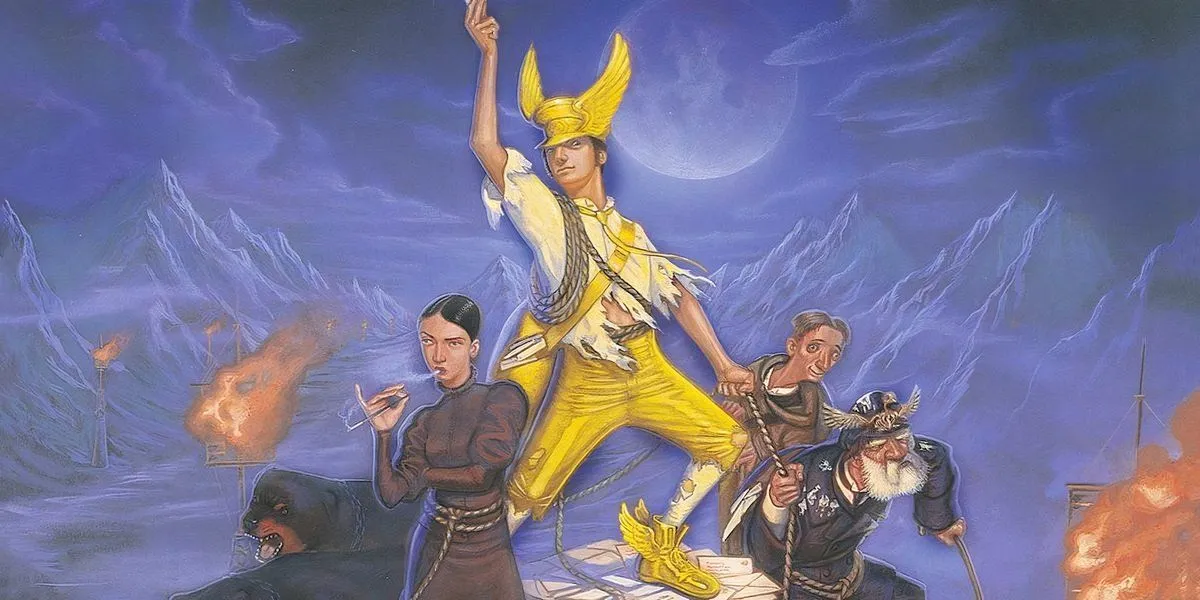
Going Postal, the 33rd book in the series, introduces Moist von Lipwig, a swindler with a life-changing opportunity from Lord Vetinari to restore Ankh-Morpork’s postal system. Amidst this journey of redemption, profound insights unfold regarding legacy and remembrance.
This quote from Grandad encapsulates the essence of human connection, asserting the idea that memory and honor hold a man’s essence beyond physical existence, resonating deeply with readers across all generations.
Leave a Reply